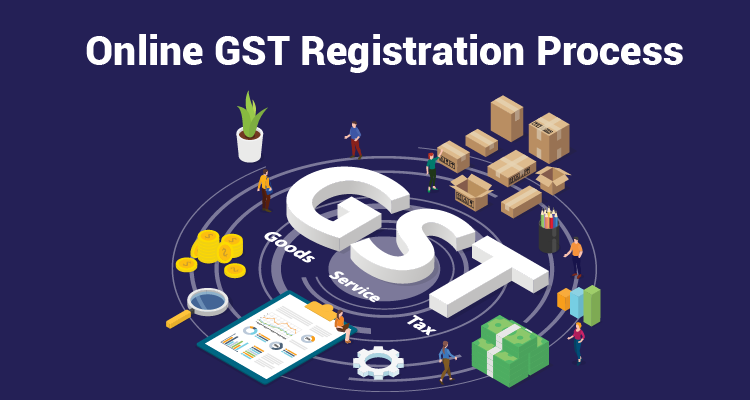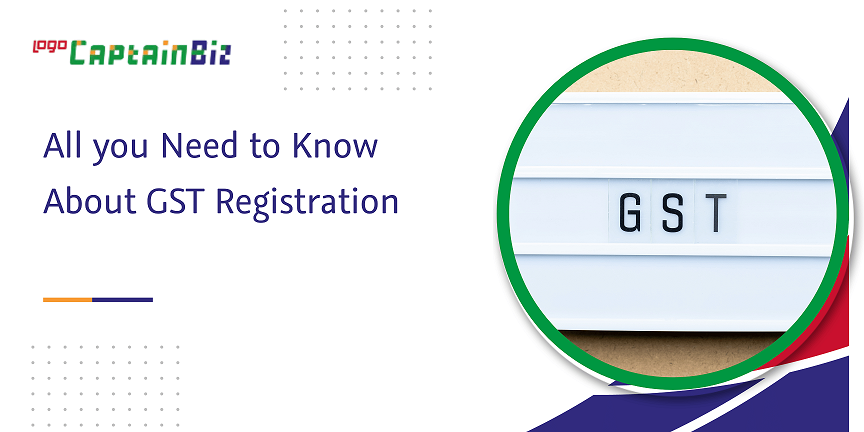From Beginning To End: A Thorough Introduction of GST Registration and How to Efficiently Register Your Company
Navigating via the elaborate process of GST registration can be an important action for any kind of service aiming to develop compliance and legitimacy on the market. Why choose CFO Account & Services for GST registration in Singapore. From comprehending the essential ideas of GST to fulfilling the eligibility standards and collecting the needed documents, the trip towards successful enrollment can typically appear like a daunting task. With the right assistance and insights, businesses can simplify this procedure and unlock the benefits that come with being a signed up entity.
Comprehending GST and Its Value
Comprehending the Product and Services Tax (GST) and its significance is necessary for companies running in economies where this taxes system is executed. GST is a value-added tax levied on the supply of solutions and products, created to simplify the indirect taxation framework. It changes multiple plunging tax obligations imposed by the state and main governments, producing a unified market across the nation. Among the essential benefits of GST is the removal of the cascading effect of taxes, causing increased efficiency in the tax system. By permitting organizations to declare input tax credit scores on the tax obligation paid on acquisitions, GST guarantees that tax obligations are determined only on the worth included at each phase of the supply chain.
Furthermore, GST advertises compliance and openness in the tax obligation regimen, minimizing tax obligation evasion and increasing government income. It streamlines tax management and compliance for businesses by giving a common system for tax obligation declaring and payment. Overall, a thorough understanding of GST is important for companies to properly browse the complexities of the tax system and make certain conformity with the regulation.
Eligibility Requirements for GST Enrollment
To sign up for GST, businesses should satisfy details eligibility standards outlined by the tax authorities. The primary need for GST registration is that the service's accumulated turn over goes beyond the threshold established by the government, which varies by state. Furthermore, specific businesses, such as those included in inter-state supply of products or solutions, casual taxable individuals, and non-resident taxable persons, are called for to register for GST regardless of their turnover.
Moreover, companies included in supplying products or services with ecommerce systems are likewise mandated to sign up for GST, irrespective of their turn over. Furthermore, companies that were signed up under the previous tax routine, such as barrel, excise duty, or solution tax, have to shift their registration to GST. Sticking to these qualification criteria is vital for organizations looking for to abide by the GST guidelines and stay clear of any kind of fines for non-compliance.
Records Required for GST Registration
When requesting GST enrollment, companies should ensure they have all the required files in order to complete the procedure efficiently and effectively. The vital documents needed for GST enrollment include proof of business enrollment or consolidation such as the Certification of Incorporation, partnership deed, or registration certification. Furthermore, services require to offer proof of address for the primary workplace, which can be supported by files like an utility costs or a rental agreement.
In addition, files confirming the identity and address of the marketers or partners included in the service, such as frying pan card, Aadhaar card, or ticket, are crucial for GST enrollment. Checking account declarations or canceled cheques showing the name of the address, business, and account number are also necessary to verify the checking account information offered during enrollment.
Making certain all the needed records are in order and easily offered will certainly improve the GST registration procedure and assistance businesses prevent delays or problems.
Online Enrollment Process for GST

After completing the form, sustaining papers need to be uploaded as per the guidelines given. These papers usually include evidence of service enrollment, address proof, financial institution statements, and identity proof of business owner. It is important to make certain that all documents are clear, valid, and submitted in the specified format to stay clear of hold-ups in the registration process.
Once the application and files are sent, companies can track the status of their GST enrollment online. If there are no concerns or added details required, the GST enrollment certification will be provided online, marking the effective conclusion of the online enrollment procedure.
Post-Registration Compliance and Tips

Furthermore, businesses need to keep correct account books, consisting of billings, accountancy records, and financial declarations, to support the info given in GST returns. Normal audits and settlements need to be performed to ensure data accuracy and conformity with GST legislations. Services need to stay upgraded on any kind of changes in GST guidelines, prices, or conformity treatments to make needed adjustments immediately. Looking for expert assistance from tax specialists or accountants can also aid services navigate complicated GST compliance requirements effectively. By remaining vigilant and proactive in post-registration conformity, services can prevent fines, maintain excellent standing with tax authorities, and foster functional efficiency.
Verdict
Finally, the procedure of GST enrollment is essential for services to adhere to tax obligation laws and operate legally. By recognizing the qualification criteria, gathering the needed records, and finishing the on the internet enrollment process, organizations can effectively register for GST. It is crucial to remain certified with post-registration requirements and look for specialist assistance when required to guarantee smooth operations.
Companies that were additional info registered under the previous tax program, such as VAT, excise task, or solution tax, should change their enrollment to GST. The crucial files needed for GST enrollment consist of evidence of organization enrollment or consolidation such as the Certification of Incorporation, partnership act, or enrollment certificate.Upon successful completion of the GST registration procedure, services need to quickly adhere to post-registration compliance needs to keep regulative compliance and make sure smooth procedures.In verdict, the procedure of GST enrollment is essential for organizations to comply with tax regulations and operate legitimately. By understanding the qualification standards, collecting the needed papers, and completing the on the internet registration procedure, businesses can efficiently register for GST.